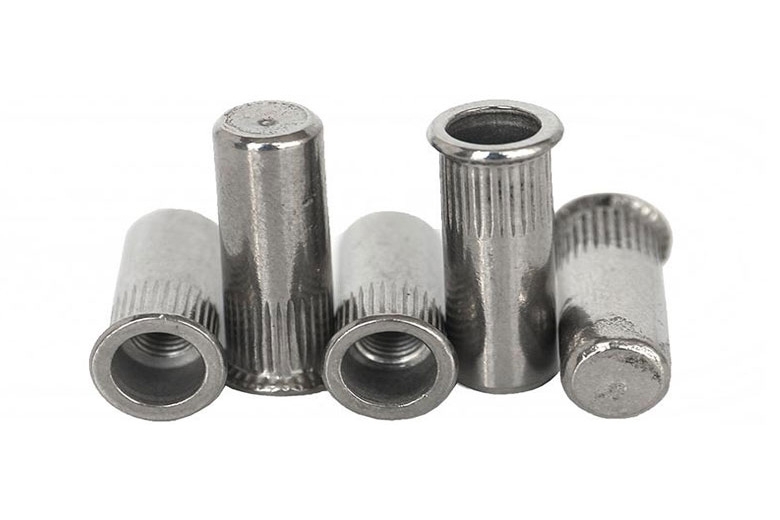The Role of Rivet Nuts in Automotive and Aerospace Manufacturing

Rivet nuts play a crucial role in modern manufacturing industries, especially in automotive and aerospace applications. These fasteners provide a reliable and efficient solution for creating strong threaded connections in thin-walled materials, where traditional fasteners like bolts and screws may not be feasible. This article explores the significance of rivet nuts, their advantages, and their impact on automotive and aerospace manufacturing.
What is a Rivet Nut?
A rivet nut, also known as a threaded insert, is a type of fastener designed to be installed into thin materials to create a secure, load-bearing thread. Unlike standard rivets, rivet nuts allow components to be attached and detached multiple times, making them an ideal choice for applications requiring maintenance and serviceability.
Advantages of Using Rivet Nuts
-
Strong and Secure Fastening: Rivet nuts provide strong, durable threads in materials where other fasteners would fail.
-
Versatility: They can be installed in a variety of materials, including aluminum, steel, and composites.
-
Ease of Installation: They can be installed from one side of the material, eliminating the need for access to the opposite side.
-
Corrosion Resistance: Many rivet nuts are made from corrosion-resistant materials such as stainless steel or coated alloys, making them suitable for harsh environments.
-
Cost-Effective: Their ease of installation and ability to reinforce weak materials contribute to cost savings in manufacturing and maintenance.
Rivet Nuts in Automotive Manufacturing
In the automotive industry, rivet nuts are extensively used to assemble body panels, interior components, and structural elements. They help manufacturers create lightweight, yet strong, vehicles by allowing secure fastening in thin materials without compromising structural integrity. Common applications include:
-
Attaching roof racks, bumpers, and fender flares.
-
Securing dashboard components and electronic modules.
-
Fastening seat structures and safety equipment.
Rivet Nuts in Aerospace Manufacturing
The aerospace industry demands high-strength, lightweight fastening solutions, making rivet nuts an essential component in aircraft assembly. They provide reliable fastening in composite materials and thin aluminum structures, commonly found in:
-
Aircraft fuselage and wing assembly.
-
Mounting avionics and control panels.
-
Fastening interior cabin structures and seating arrangements.
Conclusion
Rivet nuts have become indispensable in automotive and aerospace manufacturing due to their strength, versatility, and ease of installation. Their ability to create durable threaded connections in lightweight materials has enabled advancements in vehicle and aircraft design, contributing to increased efficiency and performance. As technology evolves, rivet nuts will continue to play a vital role in ensuring safe and reliable fastening solutions across industries.
- Questions and Answers
- Opinion
- Motivational and Inspiring Story
- Technology
- Live and Let live
- Focus
- Geopolitics
- Military-Arms/Equipment
- الحماية
- Economy
- Beasts of Nations
- Machine Tools-The “Mother Industry”
- Art
- Causes
- Crafts
- Dance
- Drinks
- Film/Movie
- Fitness
- Food
- الألعاب
- Gardening
- Health
- الرئيسية
- Literature
- Music
- Networking
- أخرى
- Party
- Religion
- Shopping
- Sports
- Theater
- Health and Wellness
- News
- Culture

